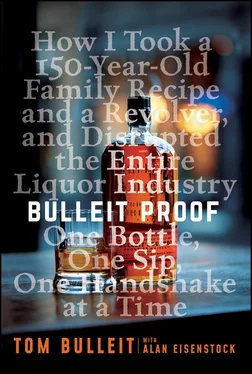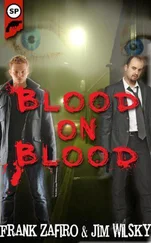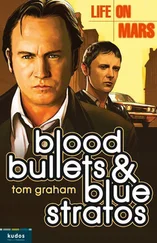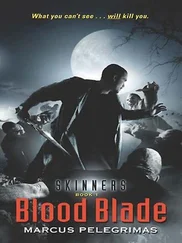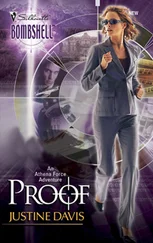“Excuse me, I thought I was joining the Navy—”
“You are. Marines are part of the Navy.” He leans forward, his eyes cold and dark, and he snarls, “That would be—excuse me, sir. ”
* * *
I complete boot camp at Great Lakes Naval Installation, a virtual city of more than 1,000 buildings spread over more than 1,000 acres north of Chicago. After that I head to Camp Lejeune in North Carolina, where I train to become a corpsman field medic (FMF), then complete my medical training at a military hospital in Portsmouth, Virginia. Looking back, this timeframe flickers and then unnerves me. I feel as if I’m caught in a vortex of events whirling around me, out of my grasp, barely in my sightline, including one event that I hazily envision but appears off to the side, nearly eluding my memory altogether. Nothing that significant. Only my wedding.
In 1967, I marry Stephanie Patrick, a high-spirited Kentuckian who keeps me laughing and on my toes. Though Stephanie doesn’t attend UK, we meet at a fraternity party. One thing leads to another, we start dating, we get engaged, and one Sunday I see myself standing next to her at St. Francis of Rome Church in Louisville, murmuring marriage vows to each other before God, a clergyman, and a tiny cluster of family and friends.
I must believe that I never want the party better known as college to end and, by marrying Stephanie, I’ll simply keep it going. But early in our marriage, I receive sobering news. The Navy mails me my orders. I will be joining the First Marine Division in Vietnam.
Two nights before I leave for Vietnam, I say goodbye to my family. The family convenes in the kitchen for what feels like a last supper. We don’t talk much, the conversation sporadic and strained. Afterward, I spend some time with my sister, Mary Jo. We say an awkward goodbye and then she wraps her arms around me in a long, tearful hug. I go into the kitchen and find my mother drying some dishes, an absent look on her face. I’ve always felt close to her, comfortable talking with her, struck by her beauty, disarmed by her easy laugh, open to her sensible advice. We hug and she goes off to bed. A wave of emptiness shudders through me. I allow it to pass, take a deep breath, and seek out my father.
Bourbon in one hand, cigarette in the other, he sits in his chair in the living room—every dad has a chair—and I sit on the couch next to him. The silence in the room presses into me. I hadn’t expected lively conversation with my father before I left for Vietnam, but I hadn’t been prepared for such—quiet. The quiet unnerves me. Maybe I expected words of wisdom from my warrior father, but I receive none. Time flicks by and I begin to fidget.
“Well,” I say, starting to stand.
“Write your mother,” my father says.
I sit back down at the edge of the couch. My father looks past me, his face obscured in a cloud of cigarette smoke. I wonder if he’s seeing something far away, something from his past, his war.
“Write your mother and tell her you are in no danger,” he says. And then he pulls something out of his shirt pocket.
“Take this.”
He hands me his St. Christopher medal and neck chain.
I stare at it, speechless.
My father takes a drag from his cigarette.
“It worked pretty good for me,” he says.
I murmur thanks. We don’t hug. We don’t have to.
Two days later, before dawn, I leave.
* * *
Who are you? Why are you here?
We land in Da Nang at night, a group of us, mixed up and mismatched, none of us in the same unit. We’ve come to replace those who have gone home, gotten hurt, or gotten killed. We have no assignment, yet. We await our orders, our destination, our destiny.
We fly commercial, served by merry flight attendants, until we begin our descent, when the flight attendants lie down on the floor and cover their heads. I blink at them, confused. Someone explains that the enemy typically lobs rockets and mortars at arriving airliners. We land then, the plane bouncing, thumping, grinding to a stop, and loud voices usher us off the aircraft. We step over and around the flight attendants on the floor.
Lugging my duffel, I walk onto the landing strip. I have no idea where I should go. A staff sergeant materializes and asks to see my papers. A few of us from the flight cluster around him and he nods at our paperwork, directing each of us with his thumb, like a hitchhiker, “You, go there. You, over there.”
He stares at my papers, murmurs, “Doc.”
“Yes, sir.”
“Go to the hospital. You know where that is?”
“No, sir.”
He points vaguely toward a shadowy hut in the distance. “Up there. They’ll tell you what to do.”
I hustle over to the hut, find a M*A*S*H unit, busy, frantic, overwhelmed, chaotic. I stand aside, bide my time, wait for a break in the action. I walk to a gunnery sergeant, who sighs heavily as I approach.
“Excuse me, sir, staff sergeant told me to see you, sir.”
He grunts. He looks exhausted, his face grimy and lined. He wears the wizened expression of a much older man. He looks me over, then asks, “Are you coming or going, son?”
I wait to answer his question, which seems both philosophical and a golden opportunity. I don’t have the sense or presence of mind to tell him I’m leaving, on my way out, so I mutter the truth, “I just arrived, sir.”
The gunny grunts, gestures to another hut nearby. “Go over there, take a shower, grab some chow, come see me tomorrow.”
He turns away. I stand stuck to my spot, holding for 30 seconds before I can move. I trudge toward the second hut, seeing no one, not a soul. The landscape I’ve trod though is barren, dark, the air heavy and smoky. I feel as if I’m in a science fiction movie, the lone inhabitant of barren, unknown planet. Suddenly, I feel a kick of loneliness so sharp I lose my breath. I gather myself, walk into the building, slowly undress, shower, rustle up something to eat in the chow area, all by myself, so alone my shadow abandons me.
I spend the next three days in this way, alone, periodically asking the gunnery sergeant where I should go. At last, he tells me to report to headquarters, found in a vague location somewhere in the dark behind us, over a hill five miles away. I march to a road where after a few minutes, a supply truck rumbles to a stop, picks me up, and brings me to a cluster of buildings, my ultimate destination. At headquarters, the sergeant in charge studies me, shakes his head slowly, and asks, “Who are you? Why are you here?”
The Heart of Darkness , I want to say. And I’m not sure who I am anymore.
I quickly identify myself, at least for the next year. I am Doc Bulleit, corpsman. I’ll run sickbays and patrols and do the best I can.
As duties go, I can’t complain. Or I won’t.
* * *
I’m surprised, at first, by the fog, by the heavy, sauna-like heat that crushes my skin like a weight, and by the thick squadrons of mosquitoes that swarm every night and into the morning. I’m also surprised by the country’s beauty, green hills rising out of the mist and rice paddies dotted several hundred feet below, the South China Sea glimmering blue in the distance. Mostly, I’m surprised by the camaraderie, the familiar, comfortable feeling of guys hanging out together, almost as if we’ve relocated Phi Delta frat house to the northern perimeter of Da Nang. I’m lonely sometimes, confused often, bored some, but mainly happy—yes, happy —to be in this company of good men. We laugh more than I would have thought and more than I would have imagined, and when we watch the Viet Cong launch rockets at us from the other side of the mountain and see them splash harmlessly into the rice paddies, we not only laugh, we sing “Fortunate Son” by Creedence Clearwater Revival, and “Light My Fire” by The Doors, and we dance.
Читать дальше
